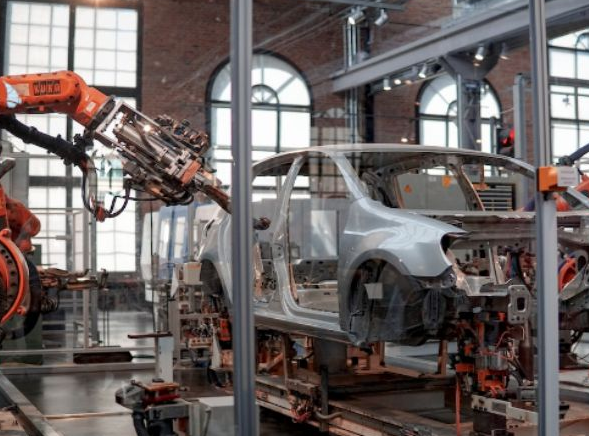If you’ve ever wondered how modern cars get their sleek dashboards, durable bumpers, or precision-engineered engine components, the answer is automotive injection molding. This manufacturing process is the backbone of the auto industry, responsible for producing high-quality plastic parts at scale.
But not all automotive injection molding companies are created equal. Whether you’re a manufacturer, a supplier, or just curious about the process, understanding who the top players are, what to look for in a supplier, and how the industry is evolving can give you an edge.
What Is Automotive Injection Molding?
Injection molding is a manufacturing process that involves injecting molten plastic into a mold to create durable and lightweight components. In the automotive industry, this process is used to produce everything from interior trims and dashboards to under-the-hood engine parts and lighting components.
Why is it so popular?
- Cost-effective for mass production
- High precision and repeatability
- Lightweight yet durable materials
- Allows complex designs with tight tolerances
Top Automotive Injection Molding Companies
There are hundreds of manufacturers worldwide specializing in automotive plastic injection molding, but here are some of the most reputable names in the industry:
1. Magna International (Canada)
One of the largest automotive suppliers in the world, Magna produces high-quality plastic parts for leading car manufacturers like Ford, GM, and Toyota. Their expertise spans interior, exterior, and structural components.
2. Lear Corporation (USA)
A leader in automotive seating and electronic systems, Lear uses injection molding to produce trim panels, seat components, and lightweight plastic structures.
3. Bosch (Germany)
Known primarily for automotive electronics and powertrain solutions, Bosch also produces precision-molded plastic components used in fuel systems, sensors, and safety mechanisms.
4. Continental AG (Germany)
Continental specializes in plastic injection molding for interior and exterior parts, particularly dashboards, control panels, and safety components.
5. Valeo (France)
A global supplier focusing on lighting systems, climate control, and ADAS (Advanced Driver Assistance Systems), Valeo’s molding technology is key to developing lightweight, energy-efficient car components.
6. Delphi Technologies (UK)
Now a part of BorgWarner, Delphi is a top-tier supplier of engine management and electrical components, many of which are injection-molded plastic.
7. Flex-N-Gate (USA)
A trusted name in automotive exteriors, Flex-N-Gate produces bumpers, grilles, and other high-impact plastic parts for brands like Ford, Tesla, and BMW.
8. Toyoda Gosei (Japan)
A Toyota Group company, Toyoda Gosei specializes in automotive safety systems, sealing solutions, and plastic molding for interior and exterior applications.
9. Novares Group (France)
Novares supplies lightweight plastic components that improve fuel efficiency and vehicle performance. They focus on structural and aesthetic parts.
10. Röchling Automotive (Germany)
An industry leader in thermoplastics and composite materials, Röchling produces aerodynamic and under-the-hood components to optimize fuel efficiency and aerodynamics.
How to Choose the Right Automotive Injection Molding Company
If you’re looking for a reliable supplier, here are key factors to consider:
1. Experience & Reputation
Look for companies with years of experience in the automotive industry. Big brands work with trusted suppliers, so check who they partner with.
2. Material Expertise
The right manufacturer should have expertise in multiple plastics, such as:
- Polypropylene (PP) – Used for bumpers and trims
- Acrylonitrile Butadiene Styrene (ABS) – Common in dashboards and consoles
- Polycarbonate (PC) – Found in headlamp covers and high-impact areas
- Nylon (PA) – Used in engine components due to its heat resistance
3. Precision & Quality Control
Automotive parts require tight tolerances and high durability. Check if the company follows ISO/TS 16949 or IATF 16949 certification, which guarantees quality.
4. Production Capacity
Can they handle large orders efficiently? Look for companies with:
- Advanced machinery (multi-cavity molds, robotic automation)
- Fast cycle times to meet production deadlines
- Low defect rates to minimize waste
5. Sustainability & Compliance
With the shift towards EVs and sustainability, more companies are using recycled plastics and bio-based polymers. If eco-friendliness matters to you, check if the supplier follows green manufacturing practices.
Trends in Automotive Injection Molding
1. Lightweighting for Fuel Efficiency
Automakers are replacing metal parts with plastic composites to make vehicles lighter and improve fuel efficiency.
2. Electric Vehicle (EV) Components
With EVs on the rise, there’s higher demand for durable, heat-resistant plastics used in battery casings, cooling systems, and charging ports.
3. Smart & Connected Vehicles
Modern cars integrate touchscreen dashboards, advanced sensors, and smart controls—all of which use injection-molded plastic parts for housing and connectivity.
4. 3D Printing & Rapid Prototyping
Some companies now use 3D printing alongside injection molding for faster prototyping and small-batch production, cutting development time.
5. Recycled & Sustainable Plastics
Many companies are shifting towards recycled plastics and biodegradable materials to reduce environmental impact.
Final Thoughts
Automotive injection molding is the backbone of modern car manufacturing. Whether you’re a car manufacturer, parts supplier, or industry enthusiast, choosing the right injection molding company is critical for quality, efficiency, and innovation.
Looking for an automotive injection molding supplier? Make sure they have experience, precision, and scalability to meet the demands of today’s fast-changing auto industry.
